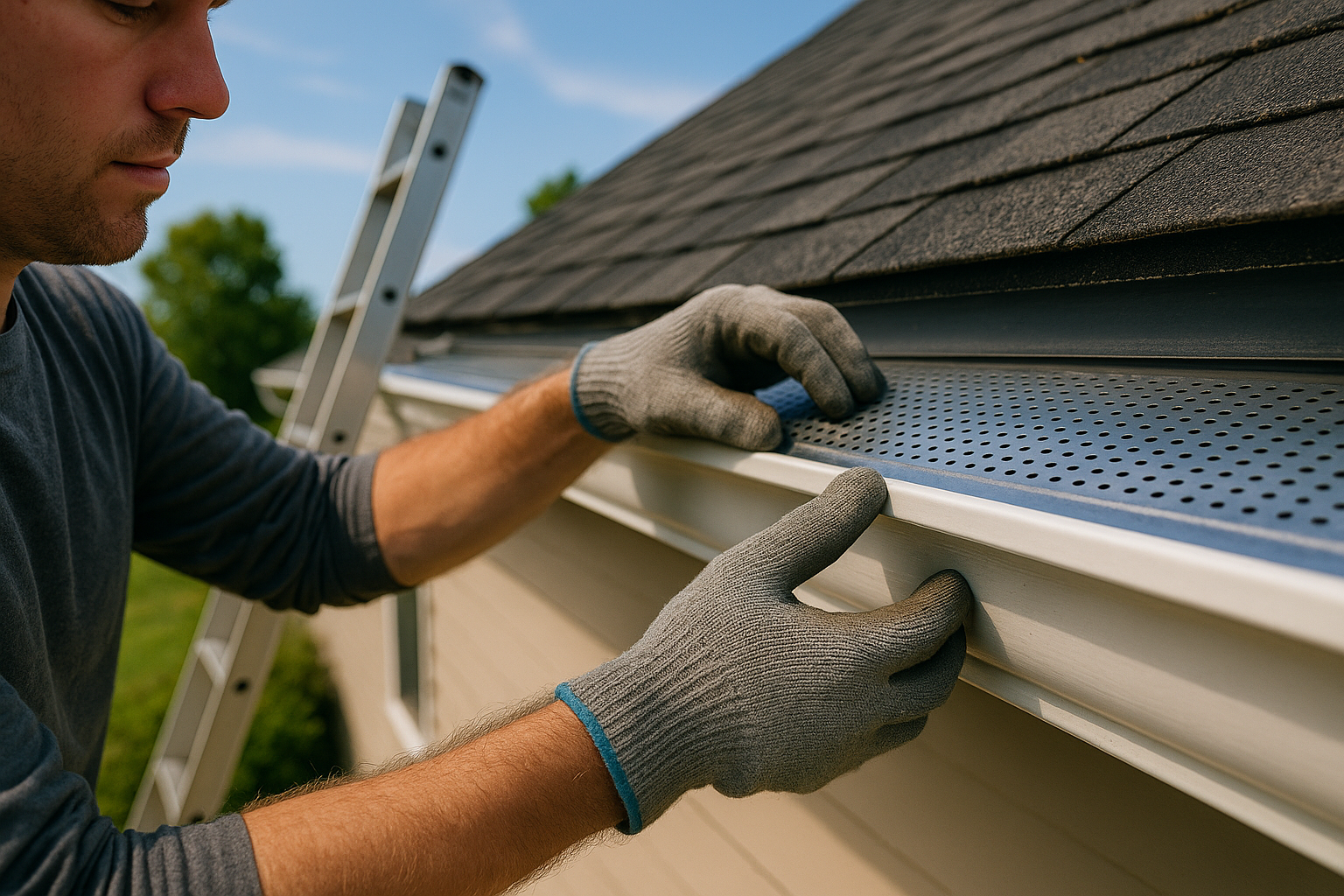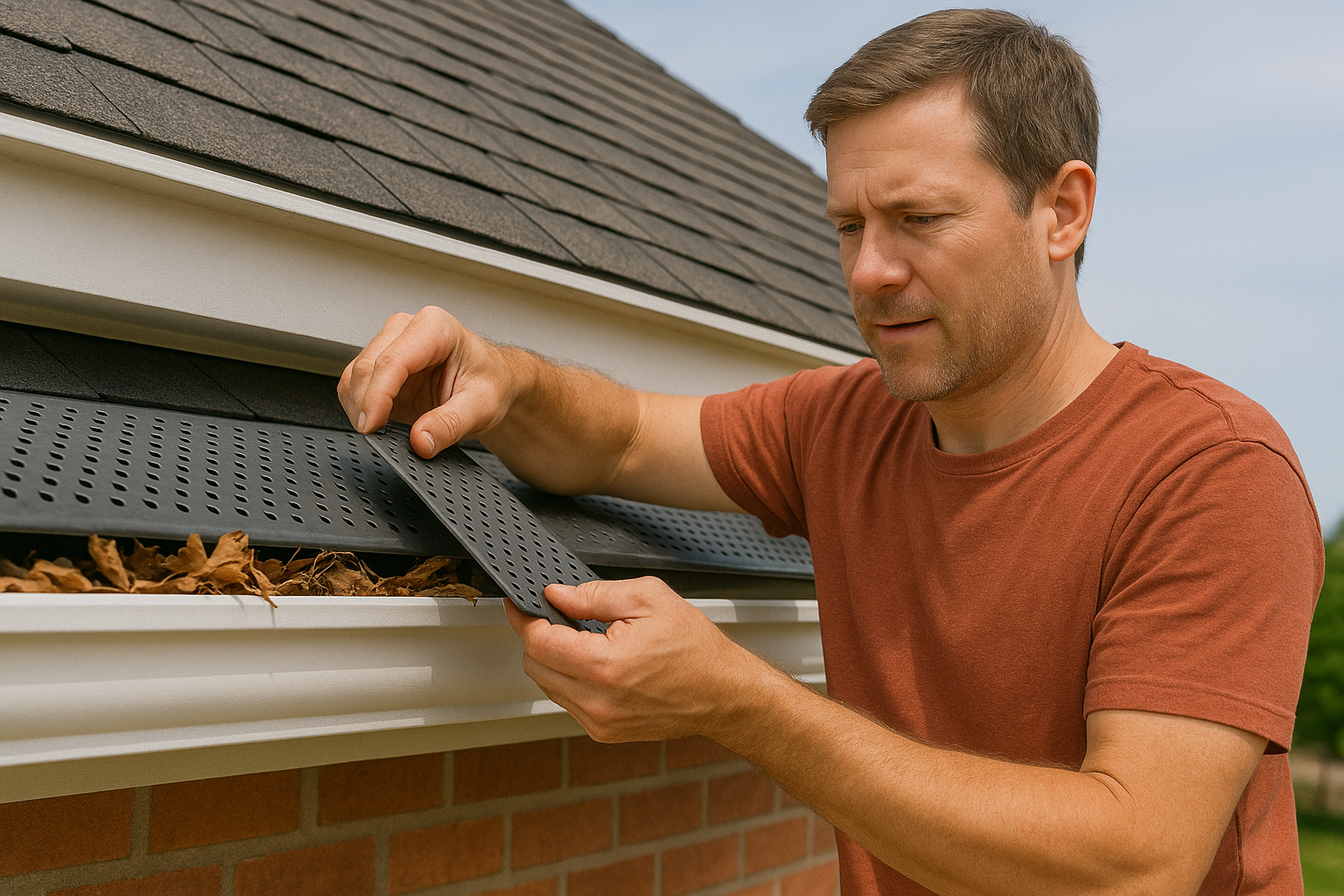Vinyl vs Aluminum Gutters: Pros, Cons, and Which to Choose | Gutters 4 Less
The two most common options for gutter systems for your home are vinyl and aluminum gutters. Both materials have unique benefits and drawbacks, making the decision dependent on your specific needs, budget, and climate.
In this comprehensive guide, we’ll explore the key differences between vinyl and aluminum gutters, helping you determine the best choice for your home.
What Are Vinyl and Aluminum Gutters?
Vinyl Gutters
Material: Made from PVC plastic, vinyl gutters are a lightweight material known for affordability and ease of installation.
Durability: While resistant to rust and corrosion, they are vulnerable to cracking under extreme temperatures or prolonged exposure to UV rays.
Maintenance: Vinyl gutters require minimal maintenance, but their lifespan depends heavily on weather conditions.
Aluminum Gutters
Material: Constructed from metal gutters, aluminum gutters are durable, rust-resistant, and lightweight.
Customization: They can be painted to match your home’s exterior, enhancing curb appeal.
Weather Resistance: Can withstand adverse weather conditions, including melting snow, heavy rainfall, and temperature fluctuations.
Comparing Vinyl vs. Aluminum Gutters
1. Durability and Longevity
Vinyl Gutters: These gutters are great for mild climates, but sub-zero temperatures or hot climates can cause cracking and warping.
Aluminum Gutters: Known for their long life span, they perform well in coastal climates, colder weather, and areas prone to heavy rainfall.
2. Installation Process
Vinyl Gutters: Easy for DIY enthusiasts due to their pre-cut sections and lightweight material, but they have many seams that can leak over time.
Aluminum Gutters: Installing aluminum gutters often requires professional installation, especially for seamless options that reduce leaks and ensure proper fit.
3. Maintenance Requirements
Vinyl Gutters: These require minimal maintenance, but frequent cleaning is needed to prevent damage to the plastic gutters.
Aluminum Gutters: Low maintenance and better suited for long-term durability. They are resistant to rust and less prone to cracking or sagging.
4. Cost Considerations
Vinyl Gutters: Great choice for a tight budget, with low material costs and simple installation. However, they may need replacement sooner, increasing long-term costs.
Aluminum Gutters: Higher upfront installation costs, but their long life span makes them more cost-effective.
5. Climate Suitability
Vinyl Gutters: Suitable for mild weather conditions but not ideal for harsh weather conditions or temperature changes.
Aluminum Gutters: Perform exceptionally in adverse weather conditions, such as sub-zero temperatures, melting snow, and colder weather.
Advantages and Disadvantages of Vinyl and Aluminum Gutters
Advantages of Vinyl Gutters
- Affordable for most homeowners.
- Lightweight and easy to install.
- Resistant to rust and corrosion.
Disadvantages of Vinyl Gutters
- More seams increase the risk of leaks.
- Vulnerable to cracking in hot climates and sub-zero temperatures.
Advantages of Aluminum Gutters
- Available in seamless options for fewer seams and better water flow.
- Handle adverse weather conditions with ease.
- Enhance curb appeal with customizable finishes.
Disadvantages of Aluminum Gutters
- Higher installation costs.
- It can dent under heavy impact.
Professional Installation vs. DIY: Which Is Right for You?
DIY with Vinyl Gutters
- Vinyl gutter systems are ideal for quick installations but require regular sealing due to their many seams.
- Suitable for smaller homes or areas with minimal water damage risks.
Professional Installation for Aluminum Gutters
- Professionals best handle the aluminum gutter installation to ensure a proper fit.
- Seamless options reduce the likelihood of leaks, saving time and money on future repairs.
Alternative Gutter Materials to Consider
While vinyl and aluminum gutters are the most popular, other gutter materials may suit specific needs:
Copper Gutters: Known for their elegance and durability, but expensive.
Steel Gutters: Durable and resistant to impact but prone to rust.
PVC Gutters: Lightweight and rust-free but lack the longevity of metal options.
Signs You Need New Gutters
New gutters may be necessary if you notice the following:
- Persistent leaks despite regular cleaning and maintenance.
- Visible cracks, sagging, or peeling paint.
- Water pooling near the foundation, indicating gutter system failure.
Choosing the Right Gutters for Your Home
Vinyl Gutters Are Ideal For:
- Homeowners in mild climates.
- Those on a tight budget.
- DIY enthusiasts are looking for a quick and easy solution.
Aluminum Gutters Are Ideal For:
- Homes in areas with harsh weather conditions or heavy rainfall.
- Long-term solutions with fewer repairs.
- Enhancing curb appeal with paintable surfaces.
Conclusion
When comparing vinyl vs aluminum gutters, your choice depends on climate, budget, and maintenance preferences. Vinyl gutters are cost-effective and great for mild climates, while aluminum gutters offer superior durability, low maintenance, and a seamless design for areas with severe weather.
Contact us today for expert advice and professional installation. Whether replacing plastic gutters or upgrading to new aluminum ones, our team ensures your home stays protected from water damage in all weather conditions.





